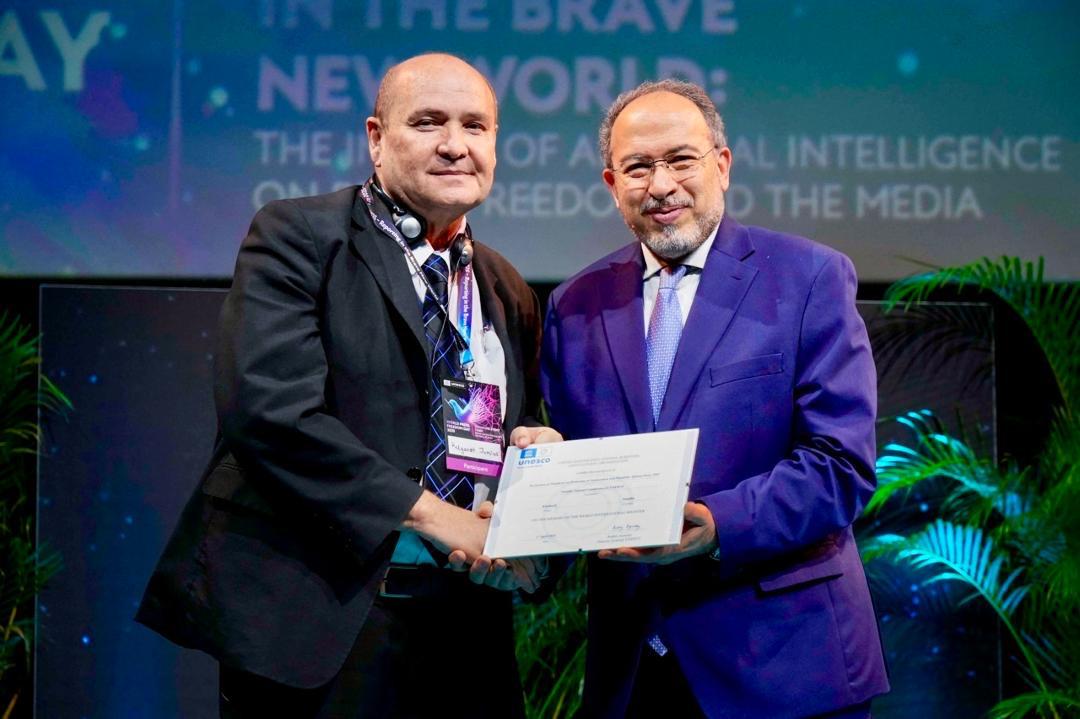A REGIONAL organisation for the protection of marine resources along the coastlines of Namibia, Angola and South Africa has banned shark finning.
It has also placed a moratorium on all fishing in several areas for the next four years. The bans come into effect immediately.The South Eastern Atlantic Fisheries Organisation (Seafo), which is based at Walvis Bay, adopted several urgent conservation measures during its third annual general meeting in Windhoek last Thursday.Among these is a ban on “shark finning”, a practice whereby crews of fishing vessels cut the fins off live sharks and throw them back into the sea to die.A record of fishing vessels will also be established to control and monitor fishing.According to Namibian marine scientist Dr Hashali Hamukuaya, who is the Executive Secretary of Seafo, the regional ocean management organisation aimed to ensure sustainable, responsible fishing in this part of the Atlantic Ocean.”Seafo implements an eco-system approach and we agreed on these conservation measures as well as to reduce incidental mortality of seabirds, especially petrels and albatrosses, by fishing gear adjustments for trawlers and other technical measures during fishing operations,” Hamukuaya said in a statement released after the meeting.”We also want to reduce mortality of sea turtles in fishing operations by making vessels promptly release turtles entangled in fishing gear when nets are pulled in.”Seafo has banned transhipments of fish catches at sea to combat illegal, unregulated and unreported fisheries (IUU).It also adopted procedures to identify and blacklist IUU vessels.In order to monitor fishing activities, all vessels fishing in the Seafo area must now have scientific observers on board to record fish catches and report to the Seafo office.The fishing ban in ten areas until 2010 protects an area where little or no fishing has taken place.Experimental fishing activities might be authorised by Seafo on a limited scale in 2008, according to Hamukuaya.Another regulation that came into effect this year is that vessels must have vessel-monitoring systems (VMS) installed and they must report their positions through VMS signals to Seafo.Seafo was established in March 2004 after the South Eastern Atlantic Fisheries Convention came into force in April 2003.Its headquarters were set up in early 2005.Angola and Namibia are members, as well as some of the countries fishing in the area, like Norway and the European Union.”We expect that South Africa will join Seafo in 2007 once its ratification procedures are completed, said Seafo chairman John Spencer at the end of the meeting, which was preceded by a week-long international conference of marine scientists.Spencer represents the EU countries fishing in this part of the ocean and has been the chairperson of Seafo since 2004.”We call on other parties, especially Japan and Russia, which are currently fishing in the Seafo area, to join our organisation and accept the responsibilities and costs, thereby balancing the benefits they draw from their fisheries in the area,” Spencer urged at the end of the meeting.All countries fishing in the South Eastern Atlantic Ocean are supposed to become members of the organisation.They pay annual membership fees, which cover the administrative costs of the Seafo offices at Walvis Bay.The bans come into effect immediately.The South Eastern Atlantic Fisheries Organisation (Seafo), which is based at Walvis Bay, adopted several urgent conservation measures during its third annual general meeting in Windhoek last Thursday.Among these is a ban on “shark finning”, a practice whereby crews of fishing vessels cut the fins off live sharks and throw them back into the sea to die.A record of fishing vessels will also be established to control and monitor fishing.According to Namibian marine scientist Dr Hashali Hamukuaya, who is the Executive Secretary of Seafo, the regional ocean management organisation aimed to ensure sustainable, responsible fishing in this part of the Atlantic Ocean.”Seafo implements an eco-system approach and we agreed on these conservation measures as well as to reduce incidental mortality of seabirds, especially petrels and albatrosses, by fishing gear adjustments for trawlers and other technical measures during fishing operations,” Hamukuaya said in a statement released after the meeting.”We also want to reduce mortality of sea turtles in fishing operations by making vessels promptly release turtles entangled in fishing gear when nets are pulled in.”Seafo has banned transhipments of fish catches at sea to combat illegal, unregulated and unreported fisheries (IUU).It also adopted procedures to identify and blacklist IUU vessels.In order to monitor fishing activities, all vessels fishing in the Seafo area must now have scientific observers on board to record fish catches and report to the Seafo office.The fishing ban in ten areas until 2010 protects an area where little or no fishing has taken place.Experimental fishing activities might be authorised by Seafo on a limited scale in 2008, according to Hamukuaya.Another regulation that came into effect this year is that vessels must have vessel-monitoring systems (VMS) installed and they must report their positions through VMS signals to Seafo.Seafo was established in March 2004 after the South Eastern Atlantic Fisheries Convention came into force in April 2003.Its headquarters were set up in early 2005.Angola and Namibia are members, as well as some of the countries fishing in the area, like Norway and the European Union.”We expect that South Africa will join Seafo in 2007 once its ratification procedures are completed, said Seafo chairman John Spencer at the end of the meeting, which was preceded by a week-long international conference of marine scientists.Spencer represents the EU countries fishing in this part of the ocean and has been the chairperson of Seafo since 2004.”We call on other parties, especially Japan and Russia, which are currently fishing in the Seafo area, to join our organisation and accept the responsibilities and costs, thereby balancing the benefits they draw from their fisheries in the area,” Spencer urged at the end of the meeting.All countries fishing in the South Eastern Atlantic Ocean are supposed to become members of the organisation.They pay annual membership fees, which cover the administrative costs of the Seafo offices at Walvis Bay.
Stay informed with The Namibian – your source for credible journalism. Get in-depth reporting and opinions for
only N$85 a month. Invest in journalism, invest in democracy –
Subscribe Now!










